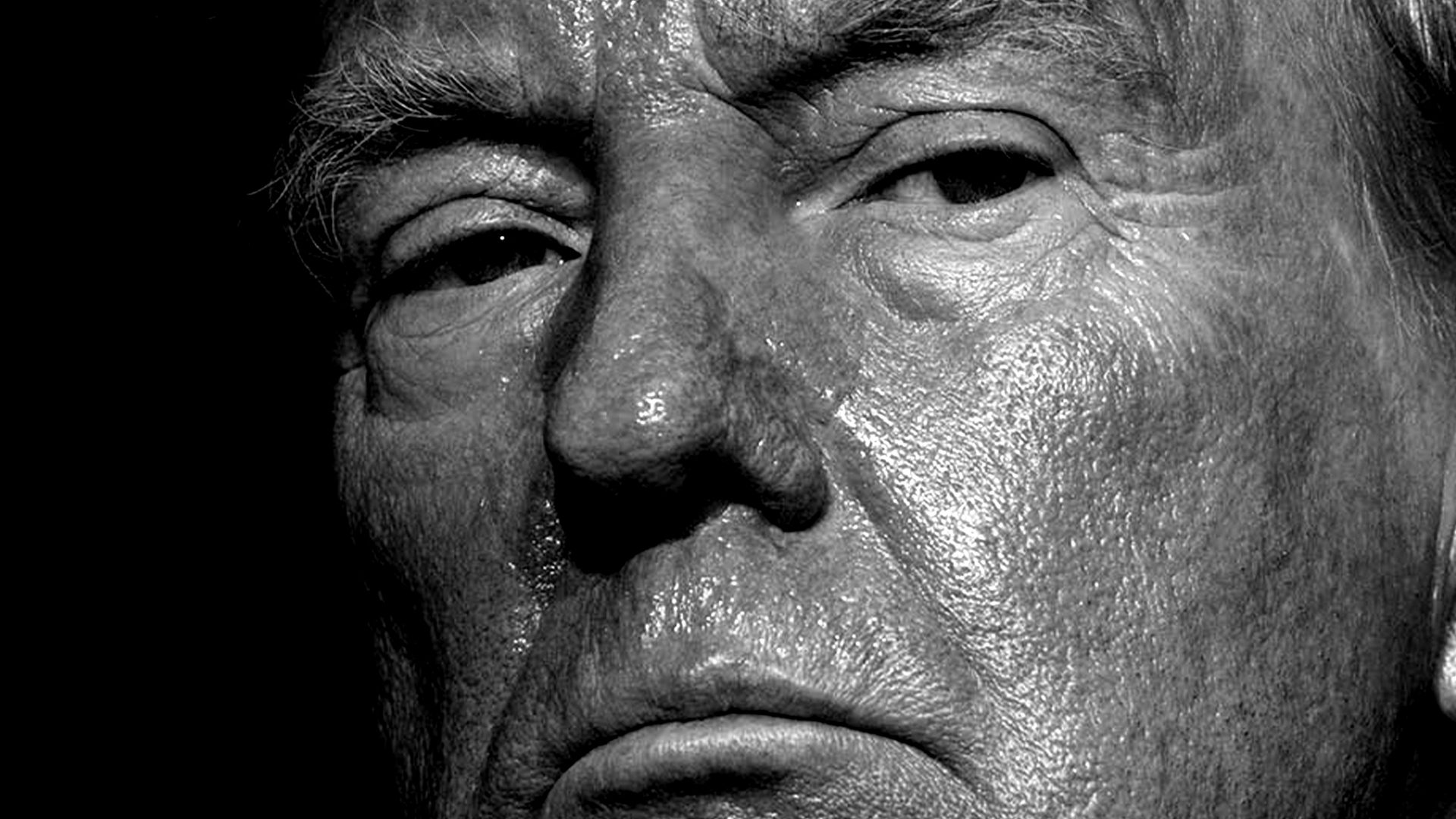“Trade wars are good and easy to win”. This has been Donald Trump’s mantra since his first term. He spent his entire re-election campaign promising to launch huge and sweeping tariffs on the USA’s allies and adversaries alike. He used his inaugural speech to promise Americans that the rest of the world would pay their bills for them, through tariffs.
And yet Trump’s many allies on Wall Street and in finance more generally were convinced they knew better – saying just days ago that the chance of Trump actually introducing tariffs on Mexico and Canada was “less than 20%”. US stock markets continued to soar, people still expected the Fed to be able to cut rates, and Serious Men kept talking earnestly about how good Donald Trump would be for business.
And then, on Saturday, Donald Trump did what he always said he was going to do. Trump is introducing tariffs of 10% on all products from China – and tariffs more than twice as large on Mexico and Canada, at 25%. They take effect on Tuesday, and are set to hit the economies of all four nations like a guided missile.
In an idealised world, trade only happens when everyone involves wants it to happen, because we always have the option of not trading. So any time that someone is trading – absent the threat of violence, or compulsion through desperation – it is because both parties feel like the deal leaves them better off. So anything that stops trades which used to happen will leave both buyers and sellers feeling worse off.
China, Mexico and Canada account for 40% of all goods imported into the USA. A 25% tariff means that 25% of the value of each import will be taxed by the US government, and most of this will result in higher prices to the consumer. That means more expensive goods, higher inflation, which in turn could mean higher interest rates as the Federal Reserve tries to stop inflation spiralling out of control.
But all of that barely scratches the surface of the damage introducing tariffs on your closest trading partners at no notice can do. The simplest consequence is that lots of trading which used to happen simply doesn’t take place any more. Some of this is just because of the higher price: sometimes we’re happy to buy something at £10 but decide against at £14.
This is known as a deadweight loss: the buyer doesn’t get the product any more, the manufacturer doesn’t get the sale (and profits), and the government misses out not just on the new tariff revenue – but also any sales tax it would’ve collected.
Some of this might be an intentional result of Trump’s tariffs, as people may switch consumption from imported goods to those made in America – and if this was the main result of new tariffs, Trump might regard the economic damage as worthwhile. But as the UK learned to its cost during Brexit, trade is more complex than its detractors imagine.
Almost any car manufactured in Canada for sale in the USA uses parts manufactured in the USA – meaning that components cross the border multiple times during the manufacturing process. In a world of tariffs, each border crossing means a 25% tax is levied – which quickly renders the process unaffordable.
In this scenario, cars from Canada don’t just become more expensive versus their US counterparts – they stop being made altogether. This will damage Canada’s economy, but it will also hurt US factories that supplied Canadian manufacturers. Both countries face major job losses, which in turn mean people have less ability to buy and consume all goods, which leads to further economic slowdown and job losses in turn.
It is not difficult to set off a chain reaction of economic devastation. It is much harder to stop one once it’s got going. Some people around Trump are clearly aware of the potential for trade wars to escalate – but seem oblivious to the politics of tariffs for Canada and Mexico.
Both Donald Trump and Elon Musk share a bizarrely entitled view of the world. Musk thinks that companies should be obliged to advertise on his social network, X – to the extent that he is currently suing former advertisers in a bid to force them to buy ads on his site. Trump is acting similarly with his tariffs, stipulating in his executive order that any “retaliatory” tariffs from Canada, China or Mexico will result in still-higher tariffs from the USA in return.
This is essentially trying to play “no takes-y backsies” with geopolitics. Trump’s position is that it is fair for the US to expect the rest of the world to fund its spending through tariffs, but that its neighbours should not tax US goods at all. If the US imposes tariffs of 25% and Canada and Mexico – as both now say they will do – introduce them at the same rate, is that really escalatory? If Trump then boosts the US tariffs to 50%, does he really think that Canada and Mexico can just shrug that off?
The USA is not the only country with domestic politics. There is nothing wrong with a political leader prioritising their own country and putting their own voters first: that’s what voters expect them to do. But every country’s voters expects the same of their own politicians.
Trump has violated a trade deal he himself signed with Canada and Mexico in order to introduce tariffs that will devastate both countries. His excuse that the tariffs are an emergency measure over Canada and Mexico’s role in the USA’s fentanyl crisis are ludicrous: while almost 10,000kg of fentanyl was intercepted on the US/Mexico border, less than 20kg was found at US/Canada crossings.
The pretext doesn’t hold. And even if Canada or Mexico’s political leaders wanted to just accept Trump’s draconian new tariffs, pretext or no, their voters would not.
Any country in the world would be obliged to respond to the kind of economic assault launched by Donald Trump. He has launched the first salvo in an economic war that is set to engulf the western world in the weeks and perhaps months to come.
Either someone finds a graceful way out, and fast, or the world is facing a global economic crisis that could easily match or exceed that of 2008 – especially if Trump follows up on his promise to expand these tariffs to the EU.
But Trump and his team are also guilty of a failure of imagination in terms of how other countries across the world could retaliate. Tariffs aren’t the only tool in the box, even if they’re the one the president defaults to on every occasion.
The USA has the world’s most valuable patent portfolio in the world, but this relies on other countries respecting and enforcing the USA’s patent rights. That could always be suspended – opening up global markets to generic rivals.
Similarly, intellectual property treaties protect the immense value of US intellectual property in the creative businesses: Hollywood, streaming shows, and more. That’s done by consent and cooperation, too. Nine of the world’s ten most valuable public companies are tech giants, and eight of those nine are American – and much if not most of their revenue comes from outside the US.
But the biggest danger to America doesn’t come from the formal retaliation of governments, but from the decisions of people who trade. Trump and his allies have forgotten the fundamental rule of trade – people engage in it voluntarily, when they think that the deal works for them.
On a basic level, people in Canada and Mexico are going to be much less willing to buy US goods. People will switch their brands, go without, change where they holiday, and more.
These decisions can persist and add up when they are fuelled by genuine and widespread anger. And once consumers form new habits, they persist – once you like a new brand of cereal, a new bottle of spirits, or whatever else, you tend to stick with it.
But more than that, the USA has been a huge winner in the game of global trade because it was a reliable and dependable trading partner. If that is no longer true, businesses will look for new trading partners they think they can trust to be stable.
Our deeply interconnected world is easy to disrupt, but it also adapts incredibly rapidly. After Russia invaded Ukraine in 2022, Europe was left scrambling to find new ways to power and heat itself through the winter without Russian gas – and managed to sign new deals and secure new trading routes to do that within a year. What had been seen as impossible happened almost overnight.
Unless someone calls an early armistice in this trade war, Canada and Mexico will do the same, as they must. Their manufacturers will find new suppliers, they will secure new buyers internationally for their products, they will sign new trade deals.
Their economies will be harmed, lives will be ruined, and devastation will be wrought – but they will rebalance away from America, and that will harm the USA.
Donald Trump is attempting something radical: he has promised Americans that the rest of the world will pay their taxes for them. He may find, and soon, that the price for trying this is higher than even he is willing to tolerate.










